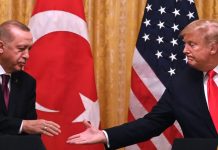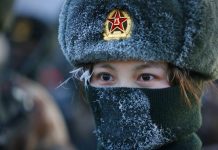Since the past week, there has been an unprecedented outburst of criticism from the international press on the role of the Narendra Modi government in the Delhi riots which killed around 53 people.
With Mahathir Gone, Will Malaysia End Support To Pakistan Over Kashmir, FATF?
The Rashtriya Swayamsevak Sangh (RSS), Bharatiya Janata Party’s ideological fountainhead, has decided against giving comments to the international press—a development that comes after several critics accused the international media of spreading false information and biased reporting during last week’s Delhi riots.
The international press, that had already turned its spotlight on India ahead of Trump’s visit, took note of the violence and criticized how both Modi and Trump seemed unaffected by the disruption of harmony around them as they continued with their engagements.
Despite Narendra Modi’s tweet reminding his followers that peace and harmony are central to the Indian ethos, the international press continued to blame the Prime Minister’s s0-called hardline policies, especially the rollout of the Citizenship Amendment Act, for the Delhi violence.
The Guardian carried the headline “Modi stoked this fire” in one its editorial and said that Prime Minister’s tweets, which appeared three days after the violence erupted in North East Delhi, does nothing to redeem the Prime Minister of his silence over three days.
Delhi Riots A Grim Reminder Of The Kashmir, Gujarat Massacre – Experts
The Khaleej Times held the PM Modi accountable as it declared “Politicians stoked Delhi Riots” with a subtle yet daring remark that “there is no need to guess who.” The article concluded with the comment – “for now, the shame is universally Indian”.
Der Spiegel, German news magazine, pointed out that the violence in the capital city unfolded while the Prime Minister was busy shaking hands with American President Donald Trump only a few miles away. The piece was titled “Outside show-off, inside protest.”
Few media outlets went a step ahead and outrageously reported like the Vice which carried a piece titled ‘New Delhi Is Burning as Modi Throws a Party for Trump’s State Visit’.
The BBC was heavily criticized for its tweet where it allegedly claimed the involvement of the Delhi police with the Hindu groups in instigating violence against the Muslim community.
Following the tweet, Shashi Shekhar Vempati, the CEO of Prasar Bharati, declined the BBC’s invitation to an event on the grounds of the broadcaster’s biased and flawed coverage of the recent Delhi riots. This is an unprecedented move as this is the first time the head of the Indian public service broadcaster has written to his counterpart in the UK complaining about alleged biased coverage.
Pakistan Lauds Iran For Courageous Condemnation Of Modi Government
The letter by Vempati further adds that the BBC reportage is “also damningly silent” on the “targeted murder of an Intelligence Bureau Official”. The letter also reflects a shift in the Prasar Bharati’s stance on the foreign publications’ coverage on India that has been quite evident over the last few months.
Responding to the accusations, Jamie Angus, the BBC World Service Group Director, stood by the reportage of his fellow colleagues and said BBC is willing to face consequences for covering the events in an independent manner.
Comparing the reportage of Indian media with the BBC, he said, while Indian media becomes intense and incredibly emotional in matters of communal violence, BBC does not enter the emotional psychodrama element of reporting because, according to him, BBC is dispassionate, independent and don’t have an agenda or a stake in matters like these.
After Zarif & Khamenei, Iranian Student Union Condemns India Over Delhi Violence
While there is a significant change in the way foreign media viewed Indian politics after 2014, the year when Modi came to power, Angus brushed-off those claims and said that the BBC has operated in the same way irrespective of the regimes.




